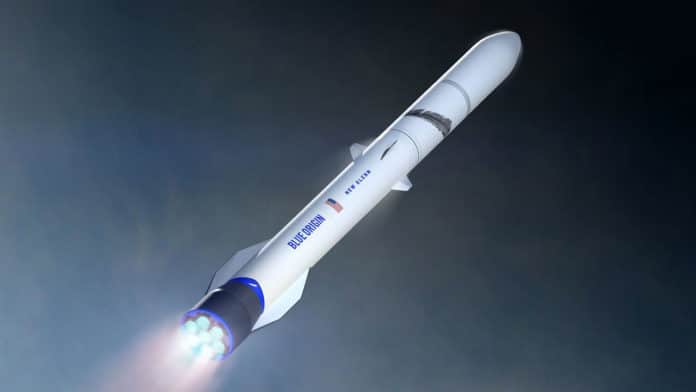Jeff Bezo’s space company Blue Origin is probably best known for its small rocket New Shepard, intended to take space tourists for shorter trips to space soon. In addition to this, Blue Origin has also designed New Glenn heavy-lift rocket, which has now been approved by NASA for future unmanned scientific and exploration missions.
The contract, part of the space agency’s NASA Launch Services (NLS) II, is an important step in Blue Origin’s quest to compete with SpaceX, Boeing, and others for valuable civilian and national security launch contracts. NLS II contractors must have the ability to successfully launch and deliver a payload to orbit using a domestic launch service capable of placing, at minimum, a 250 kg (551 lb.) payload into a 200 km (124 miles) circular orbit at an inclination of 28.5 degrees.
New Glenn is an orbital launch vehicle with two stages and an additional third, with a reusable first stage. It is designed to lift up to 45 metric tons (99,208 pounds) to low Earth orbit (LEO) and 13 metric tons (28,660 pounds) to a geostationary transfer orbit. That would put it at the upper end of the heavy-lift category of up to 110,000 pounds into LEO. The first test launch of New Glenn is scheduled for 2021.
This means that Blue Origin may be able to help NASA launch satellites and transport materials to the International Space Station (ISS) in the future. It also means that Blue Origin will start competing with SpaceX to fly material into space for NASA, something that even SpaceX rockets Falcon 9 and Falcon Heavy are approved to do.
